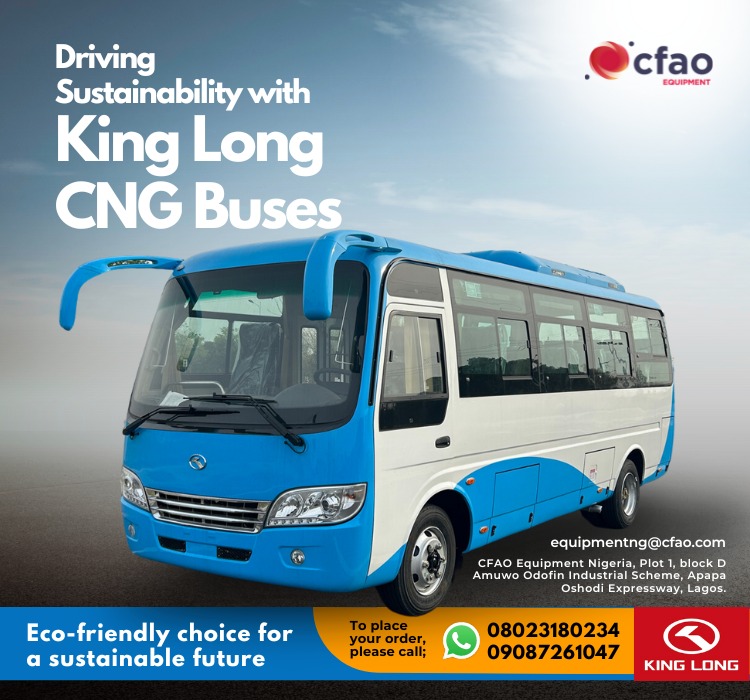Automakers, dealers and other stakeholders have displayed displeasure over China’s plan to sell its used vehicles to Nigeria and other global markets as a strategy to shore up its income from the automobile industry.
But local automakers and dealers are explicit in rejecting the planned sale, which they assert will kill the local auto industry.
They said it was absurd for Nigeria to let China ship its used vehicles to the country at a time many automakers were still dealing with the influx of used European and American auto brands.
The General Manager, Marketing and Corporate Communications at the Coscharis Group, Mr Abiona Babarinde, said, “If this position is correct, it will be counterproductive and unfortunate. Used cars from China or any country should not be encouraged by our government now. It will not be value-adding.
“Nigeria will be a dumping ground for all manner of vehicles. This can’t grow the local auto industry; it will be a setback for the local assemblers of vehicles.
“Besides, it will be confusing for the government to encourage the importation of used vehicles from China at the time same it is encouraging local production of vehicles.”
The Marketing Manager of Dana Motors, Mr Olawale Jimoh, stated that the used Chinese models being allowed into the country would not only impede the little growth made in the last five years with the establishment of an auto policy but would also cripple the nation’s economy with massive job losses.
He said, “What we will be basically doing is to help the Chinese economy grow. By bringing in their used cars, production of new cars will grow in their own country. This will help them generate more employment and increase their Gross Domestic Product.
“It will also make our country a junkyard of used cars in the world; we are currently contending with used cars from European countries, America and all of that.”
The Executive Director, Nigeria Automotive Manufacturers Association, Mr Remi Olaofe, said the Federal Government had not shown enough commitment to ensuring the success of the five-year-old auto policy.
He lamented the delay in getting President Muhammadu Buhari to assent to the Nigeria auto bill, adding, “No investor will want to come to a country where their business is not protected.”
Senator Shehu Sanni, in a tweet on the issue, stated, “To ban the importation of textiles and milk to ‘protect our local industries’ and allow the importation of used vehicles from China is a dumb economic policy.”
The Director-General, Lagos Chamber of Commerce and Industry, Mr Muda Yusuf, noted that used cars were not under the import prohibition list. He advised the Federal Government to redefine the age limit and types of cars that could be brought into the country.
He said, “There are too many junks coming into the country and this poses safety risks. The government needs to redefine the age limit of cars coming into the country.
“Also, the import duty on used cars should be reduced to a maximum of 20 per cent so that people can afford newer models of used cars instead of going for junks. The market for rickety vehicles has become very huge because of the affordability challenge caused by high import duty.”
On the impact of the importation of Chinese cars on the national automotive policy, Yusuf remarked that the policy was due for a review and maintained that Nigeria was not ripe for such a policy.
He said, “We have no steel and iron industry to support the policy. We do not have a tyre or battery producing firm.
“What people do is that they just bring in parts and assemble them here, making the vehicles more expensive than they are supposed to be. We don’t have a competitive advantage in automobile manufacturing and it is better for us to concentrate on areas in which we have competitive strength such as the oil and gas sector.”
China’s Ministry of Commerce had reportedly announced in a statement that it would soon begin the exportation of used cars to 10 global markets including Nigeria with a view to driving its vehicle sales, which contracted last year for the first time since the 1990s.
But sources at the National Automotive Design and Development Council and the Nigeria Customs Service said the matter had yet to be communicated to them.
(PUNCH)
Sign in
Welcome! Log into your account
Forgot your password? Get help
PRIVACY POLICY PAGE
Password recovery
Recover your password
A password will be e-mailed to you.












